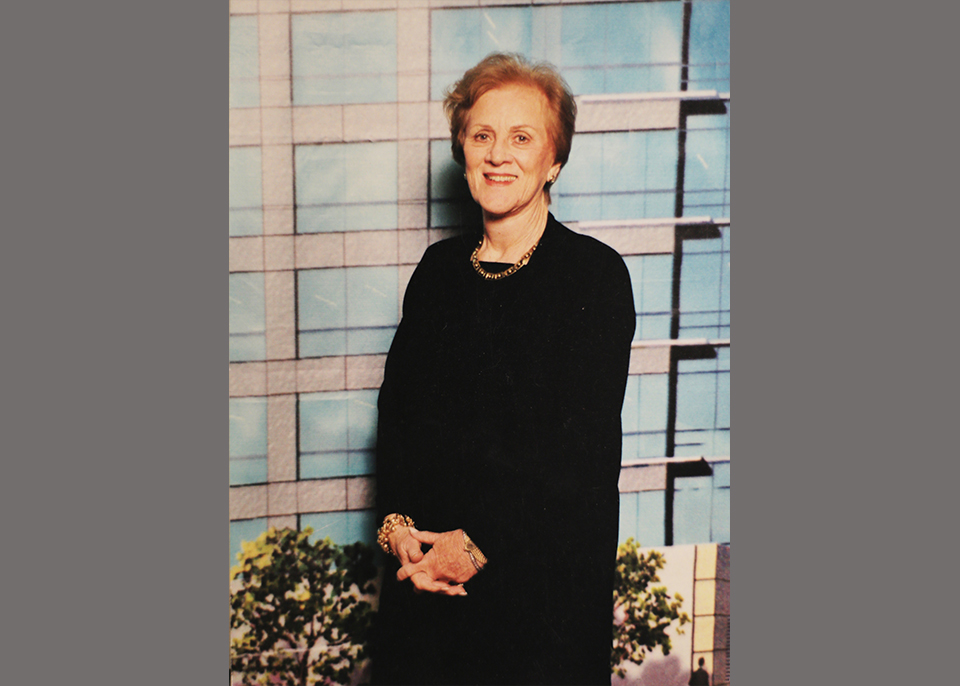Educational Opportunities for Students with Special Needs Motivates CSUN Philanthropist Elaine Berke
Elaine Berke’s passion about mainstreaming education began during a visit to her 9-year-old granddaughter, Lana’s, classroom. Lana, as a child with special needs, was part of a mainstreamed classroom, where students with special needs are integrated into general education classrooms.
“When the children began to do their reading, the teacher put up an easel and gave Lana crayons,” Berke said. “It was wonderful how many kids would rush to help her, but after the class, I asked the teacher what Lana’s goals were. She answered, ‘Socialization.’ I said, ‘She’s too social — she needs to learn to read!’ And the teacher said, ‘Those aren’t my instructions.’ That’s what prompted me to look into mainstreaming.”
Mainstreaming can present challenges for unprepared educators, who must meet the needs of both sets of students simultaneously. Berke believed it was important to help future teachers gain a deeper understanding of the most effective methods of mainstreaming children with special needs.
Having lived in the San Fernando Valley for more than 50 years, Berke chose to give to CSUN’s Michael D. Eisner College of Education because the university is an integral part of her hometown. “I live in the Valley, and CSUN is a Valley school,” she said. “I believe it’s important [to give to] your community.” That generosity and philanthropic spirit lead to the College of Education’s Berke Assessment Clinic and Library.
The Berke Assessment Clinic and Library serves local residents by offering low- or no-cost learning assessments to children with learning differences. Part of the Teaching and Learning Counseling Consortium, the Berke Assessment Clinic provides assessment materials and curriculum support for CSUN students earning their degrees in special education, under the supervision the clinic’s director, Dr. Wilda Laija-Rodriguez.
Berke credits her husband, Lou, with teaching her the value of giving. Born in blue-collar surroundings in Brooklyn, N.Y., Berke didn’t come from wealth; she graduated from high school at age 16 and immediately went to work to help support her family.
“I was married at age 19, and Lou and I were together for 30 years until he died in his 50s,” Berke said. “We were both of modest means. The December before our marriage, he called me and said, ‘You’ll never believe it: They just gave out year-end bonuses! I got $1,000, so I’m giving $100 to the United Jewish Appeal!’
“I said, ‘Are you crazy? You make $90 a week, I make $45 a week, we’re getting married and nobody can give us anything. How could you possibly give away $100?’” she continued.
“Then he said, ‘Okay, let’s start this conversation over. ‘You’ll never believe it: They just gave out year-end bonuses! I got $900!’ He believed if you didn’t give first, you wouldn’t have money left over to give. That’s how I learned philanthropy,” she said.
Sadly, Berke and her family lost Lana as a child to a malignant brain tumor, but the work she inspired has had a lasting impact for both Berke and CSUN. “Even though Lana died, it didn’t stop me from wanting to take care of more children like her who were being mainstreamed but not really taught,” she said. “I believe it’s important for student-teachers to learn about these children so they can be better educated to get to whatever academic level they’re capable of.
“I’m not a wealthy person, but I believe in giving,” Berke added. “These student-teachers will teach our future generations. It’s as simple as that.”



 experience
experience